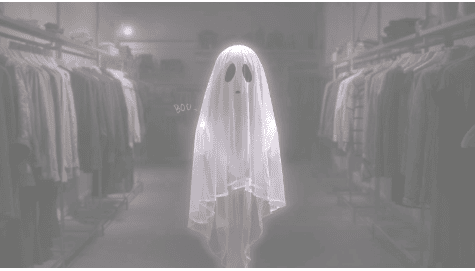This time last year, we wrote a Halloween-themed article, “Very Scary Marketing Decisions,” highlighting baffling and ill-conceived advertising and branding blunders, such as:
- Bath and Body Works launching a line of holiday candles, which included one bearing the design of a “snowflake” resembling the pointed hoods of one of the world’s most notorious white supremacist groups.
- Walmart releasing a Juneteenth limited edition ice cream flavor, which was criticized as trying to make profits off of a holiday meant to celebrate African American freedom.
- Walmart (again, bless their heart) advertising plus-size Halloween costumes on their website under a product category “fat girl costumes.”
Ouch.
Some missteps like these are so glaring they seem almost satirical, crossing clear cultural or moral lines and drawing immediate, justified outrage.
But not every brand blunder is a full-on PR crisis. Sometimes, the damage is quieter.
A campaign may fall short of provoking widespread boycotts or front-page backlash, but it still feels off – coming across as tone-deaf, out of step, or poorly timed. And in today’s hyper-connected, socially conscious world, even these “lighter” mistakes can erode trust, confuse brand identity, and chip away at consumer goodwill.
Here are some examples of when a softer punch can still hurt:
In May 2025, Australian toothpaste brand White Glo faced widespread outrage for its public transit ads in Melbourne featuring the slogan “Make the White Choice,” which was intended as a pun promoting teeth whitening but was widely seen as racist and white supremacist. After intense backlash and accusations of tone-deafness, the company apologized publicly, removed the campaign, and pledged to revise its messaging.
Dating site Bumble also fumbled recently with a rebranding campaign targeting the “celibacy era.” The message? “A vow of celibacy is not the answer.” Meant to be cheeky and empowering, the ad instead alienated many, particularly survivors of sexual trauma and others for whom celibacy is a valid, personal choice. The backlash forced Bumble to remove the ad and issue an apology, but the damage was already done.
Another recent move that has drawn some side eye? Adidas, after cutting ties with uber-controversial co-creator Kanye West, reintroduced Yeezy products late last year. Though the company promised to donate profits to fight hate speech, many saw it as a profit-first move that contradicted their original stance.
These aren’t overtly offensive or malicious campaigns. They’re not hate symbols disguised as snowflakes or culturally insensitive product categories. But they reflect a different kind of disconnect: a failure to read the room, to understand your audience, or to empathize with real human experiences.
It’s tempting to dismiss these moments as minor embarrassments. But in today’s digital-first world, there’s rarely such a thing as a quiet failure. Social media has democratized public feedback, and small controversies can snowball quickly.
Here is why lighter missteps still matter:
- Erosion of Trust: Consumers have long memories. Even a small PR blunder can chip away at the trust customers have in a brand’s values.
- Brand Identity Confusion: When actions don’t match a company’s stated mission, it creates cognitive dissonance. Brands that position themselves as inclusive, ethical, or progressive have the most to lose from perceived hypocrisy.
- Employee Fallout: Public stumbles don’t just affect customers. Employees want to work for brands they believe in. When a company becomes a punchline, morale and retention can suffer.
- Recruitment and Partnerships: Negative press, even from small missteps, can make brands less attractive to partners, influencers, and future hires.
The line between edgy and offensive, clever and clueless, is thinner than ever. That’s why smart brands are investing not only in creative marketing but in crisis preparedness.
And here are a few thought starters you can discuss at your next team meeting to help your leaders and team see how your business would handle a marketing crisis such as the very scary ones detailed above:
- How does your business identify potential cultural blind spots?
- Whose eyes are on your branding and ad campaigns before they go public?
- Do you have a rapid response plan in place if a campaign goes sideways?
Kith facilitates crisis preparedness workshops that will help your company attain the clarity, trust, and speed you need to respond confidently – no dithering! – to any crisis. We’d be happy to have a conversation about how we can help your company be ready to chart an effective course to reputation protection.


